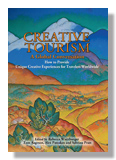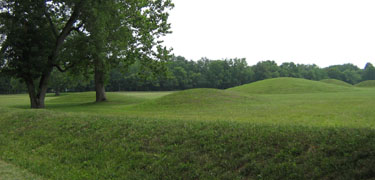
The member nations are in the process of electing a new Director General for UNESCO. The Director General's term of office is four years, and the DG may be reelected once. Thus a successful DG may be expected to serve eight years.
A Long Term Historical PerspectiveUNESCO's mission as I see it is to mobilize the intellectual communities of the world to promote peace, cultural understanding, education, science, and communications. By its very nature, UNESCO must take a very long term view. In that view, now (as always) is a divide between the past and the future.
A century ago the European nations dominated the world, unsuspecting that two world wars and a great depression were about to decimate their homelands and lead to the decolonization of their overseas empires. The last century saw an increase of life expectancy of several years per decade, a huge growth in world population, a radical increase in schooling, and a technological revolution, especially in information and communication technologies.
We don't know what will come in the next century, but it seems obvious that there will be major challenges. It is UNESCO's job to mobilize the global intellectual community to meet the coming challenges.
The Challenges of the Next DecadeThere are a number of challenges for UNESCO that are clear for the coming decade.
Education: The Education for All campaign and the Millennium Development Goals have produced great progress in education, but will not achieve their stated objectives by 2015. UNESCO should play a major role in promoting continued educational progress, but also in defining new goals for future decades. As the global community defines its new goals over the next six years it is especially important that UNESCO's Director General provides credible leadership.
Science: UNESCO should provide critically important leadership in catalyzing global networks of environmental scientists as the global community mobilizes to meet increasing environmental challenges from climate change, desertification, deforestation, degradation of coastal zones, depletions of fisheries, and depletion of non-renewable resources. Again, the Director General should provide credible leadership.
Culture: There is a critical and immediate need to improve cultural understanding among peoples. While this need is most recognized in terms of Christian, Muslim and Jewish peoples, there are many other places where cultural diversity currently leads to conflict, often armed conflict. UNESCO's leadership in promoting a culture of peace, respect for cultural diversity, and cultural understanding remain central to the Organization's purpose, and require strong leadership from a credible Director General.
Communications and Information: The Information Revoluation is transforming global society, but the digital divide between rich and poor creates great problems. UNESCO's mission to assure freedom of information is increasing in importance, and UNESCO's leadership is sorely needed to mobilize the global intellectual community to assure that the benefits of the Information Revolution are fully realized and widely shared.
Poverty: Poverty is the most pressing global problem, and it is increasingly recognized that it is in knowledge and technology that the solution to poverty must be sought. Again, UNESCO should play a global leadership role, and tits Director General should provide a strong and credible voice promoting the creation and dissemination of knowledge to fight poverty.
Choosing a New Director GeneralUNESCO is a large and complex organization, with a budget of more than $500 million per year, thousands of employees, and offices in 58 countries so that the Director General must be capable of managing such an organization. However, such a description masks an important aspect of the Organization. UNESCO has the authority and power to convene global leaders and to create functioning global networks in its fields of competence. The influence of the Organization extends far beyond its formal organizational structure, and so too must the influence of its Director General.
The task of UNESCO's electors is to choose the nominee who can best lead and speak for the Organization as it faces the challenges outlined above. These challenges are too important to settle for less. The danger is that the election will devolve into politics as usual. UNESCO needs not the person whose backers can mobilize the most support among member nations by the traditional tools of diplomacy, but rather the person who combines the knowledge, experience, and charisma to do the best job.
John Daly
(The opinions stated above are those of the author alone, and do not necessarily reflect those of Americans for UNESCO.)























